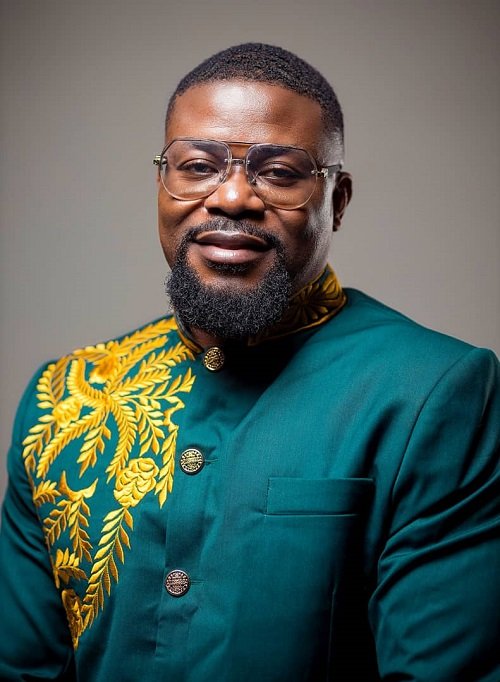Hot!
Pink month here again, let’s join fight against breast cancer
Mrs Kumah-Dzagah (Supporting picture)
Breast Cancer continues to claim the lives of both young and older persons, especially women.
But even among those that survive the disease, they continue to live with the fear of the cancer recurring.
It is a relentless adversary; claiming lives and shattering families.
The severity of the disease does not only lie in its physiological impact but also in the emotional and social turmoil it instigates.
Beyond the physical pain, the emotional torture on patients and their loved ones is profound.
Breast Cancer has become the number one killer disease among women with more than 4,650 diagnoses and over 2,000 deaths annually in Ghana.
Globally, it is estimated that about 2.3 million women are diagnosed with breast cancer, claiming 685,000 deaths.
At the end of 2020, 7.8 million women were diagnosed with breast cancer, making it the world’s most prevalent cancer among women.

In a global effort to raise awareness on breast cancer, October has been designated as a Pink Month.
The Pink Month is set aside to educate both women and men about the disease, including early identification as well as signs and symptoms associated with it.
This year’s celebration is under the theme ‘Join the fight’ aiming a call on genders of all ages to be involved in the fight against the deadly disease.
A breast cancer survivor Georgina Setorwu Kumah-Dzagah, was diagnosed with Breast Cancer in 2018 at the age of 31.
She first felt a sharp pain in her right breast in October 2017 which she ignored for weeks until she detected something unusual in the same breast.
Sharing her experiences of the killer disease with The Spectator in Accra on Monday, Mrs Kumah-Dzagah narrated how she consulted a General Physician after she had attempted treating herself for three months; a period within which a lump she discovered grew bigger and became more painful.
“I was not convinced when the first doctor I consulted told me the lump was just some fatty tissues. This was after he had conducted a Clinical Breast Examination and Breast Ultrasound Scan on me. In my despair, I sought a second, third and fourth opinion.
“My real nightmare was when the fourth doctor requested for a complementary breast ultrasound scan and mammogram and two biopsies.
Her first biopsy was benign but the doctor insisted on a second opinion which eventually confirmed my diagnosis in 2018.
Mrs Kumah-Dzagah’s initial diagnosis was a Ductal Carcinoma In-Situ (DCIS), a non-invasive type of breast cancer.
A non-invasive breast cancer is when the cells that line the ducts changes to cancer cells but have not spread through the walls of the duct into the nearby tissue.
But after the surgery, the diagnosis changed to 95 per cent DCIS, five per cent Colloid Carcinoma.
Colloid Carcinoma is rare form of invasive ductal cancer characterised by large amount of mucous deposition.
“My breast cancer diagnosis was much unexpected. I grieved for days. The disease did not only invade my body, it interrupted my life by bringing it to an abrupt standstill.
TREATMENT
Treatment for the disease is another long tortuous journey. “I had two surgeries, chemotherapy, radiotherapy and hormonal therapy.”
Mrs Kumah-Dzagah told The Spectator she had her first surgery – a wide local excision plus axillary clearance – a week after the diagnosis.
In that process, 14 lymph nodes were removed. Luckily, she had one of her breast conserved.
“My treatment continued with six ‘gruesome cycles’ of chemotherapy, the total removal of my affected breast (mastectomy), three weeks of radiotherapy and an added 10 years of hormonal therapy plan,” she said.
The hormonal therapy is a daily hormone suppresser pill she had to take for 10 years.
She stated that the side effects of the medication which were menopausal symptoms like hot flashes, fatigue, forgetfulness and confusion had compromised the quality of her life but said “I will rather live with all these side effects than to have the cancer return.”
It has been six years since Mrs Kumah-Dzagah detected the breast cancer lump that almost killed her and four years since she completed her active treatment.
LIFE AFTER CANCER
She admitted that breast cancer changed the course and focus of her life, saying that her perception about life had changed and that some things that were important to her were no longer so.
“I was an active and busy person, but I have slowed down, especially during my chemotherapy and after the surgeries. I had to depend on others for assistance which was not my attitude.
“I always wanted to be the survivor so I sought for and looked up to what I did not find during my treatment. I prayed and fought to survive so I could be a beacon of hope to others,” she added.
Mrs Kumah-Dzagah had therefore committed her life to helping others win their fights against breast cancer through advocacy and sharing her breast cancer story.
I hope by advocating and sharing my story with other breast cancer patients and survivors, they will be inspired and realised that it was possible to regain their lives and be stronger, healthier and happier after diagnosis and treatment.
Mrs Kumah-Dzagah called for a concerted effort from all stakeholders including non-governmental organisations, religious bodies, philanthropists and governments in the fight against breast cancer.
She also called for support for breast cancer patients especially with payment for chemotherapy and dialysis.
SYMPTOMS
Different women have different symptoms of breast cancer while some do not have any signs or symptoms at all.
Some of the symptoms include new lump in the breast or underarm (armpit), thickening or swelling of part of the breast, irritation or dimpling of breast skin, redness or flaky skin in the nipple area or the breast, pulling in of the nipple or pain in the nipple area.
Other symptoms are nipple discharge other than breast milk, including blood, any change in the size or the shape of the breast, pain in any area of the breast.
RISK FACTORS
Studies have shown that one’s risk for breast cancer was due to a combination of factors.
The main factors that could influence a person’s risk include being a woman, getting older, reproductive history, having dense breast, personal history of breast cancer or certain non-cancerous breast diseases, family history of breast or ovarian cancer, previous treatment using radiation therapy.
DIAGNOSIS
Mammograms are commonly used to screen for breast cancer. If an abnormality is detected on a screening mammogram, the doctor may recommend a diagnostic mammogram to further evaluate that abnormality. Ultrasound uses sound waves to produce images of structures deep within the body.
By Jemima Esinam Kuatisnu
Hot!
Education Minister outlines plan for free schooling for learners with special needs

Education Minister Haruna Iddrissu has announced that government is working to make education free for all learners with special needs, with funding expected to come from GETFund.
He shared the plan during a press briefing with the media.
According to him, an initial estimate shows that the policy will require between 65 million and 100 million cedis every year.
He noted that GETFund currently has a budget of 9 million cedis, and with proper adjustments, it should be possible for the fund to release about 100 million cedis every other year to support the policy.
Mr Iddrissu added that government is also committed to providing free tertiary education for all persons with disabilities.
He explained that the support will go beyond classroom learning and will include feeding and the provision of assistive learning devices for learners with special needs.
By: Jacob Aggrey
Entertainment
Prophet Joseph Atarah releases new video

Ghana’s singing Prophet, Joseph Atarah, has released a video for his new song dubbed ‘Increase’. The video was directed and shot by renowned director, Sky Web.
The motivational video exhibits captivating dance moves, set against the vibrant and beautiful city of Accra. Prophet Atarah co-wrote the song with Nana Boateng.
Touching on the message during an interview on Hitz FM’s Daybreak Hitz, he said, ‘Increase’ is a motivational song telling people not to give up in their present situation. According to him, with determination and a relentless desire to succeed, God will make everything beautiful.
“As you trust in God’s plan, remember that ‘INCREASE’ is on the way. Just as seeds grow into harvest, your faith is growing into abundance. God’s got you, and His increase is surrounding you,” he added.
Prophet Atarah resigned from the military band in 2006 after an encounter with God to start his prophetic ministry and commenced his music journey about four years ago.
By Edem Mensah-Tsotorme
Join our WhatsApp Channel now!
https://whatsapp.com/channel/0029VbBElzjInlqHhl1aTU27






